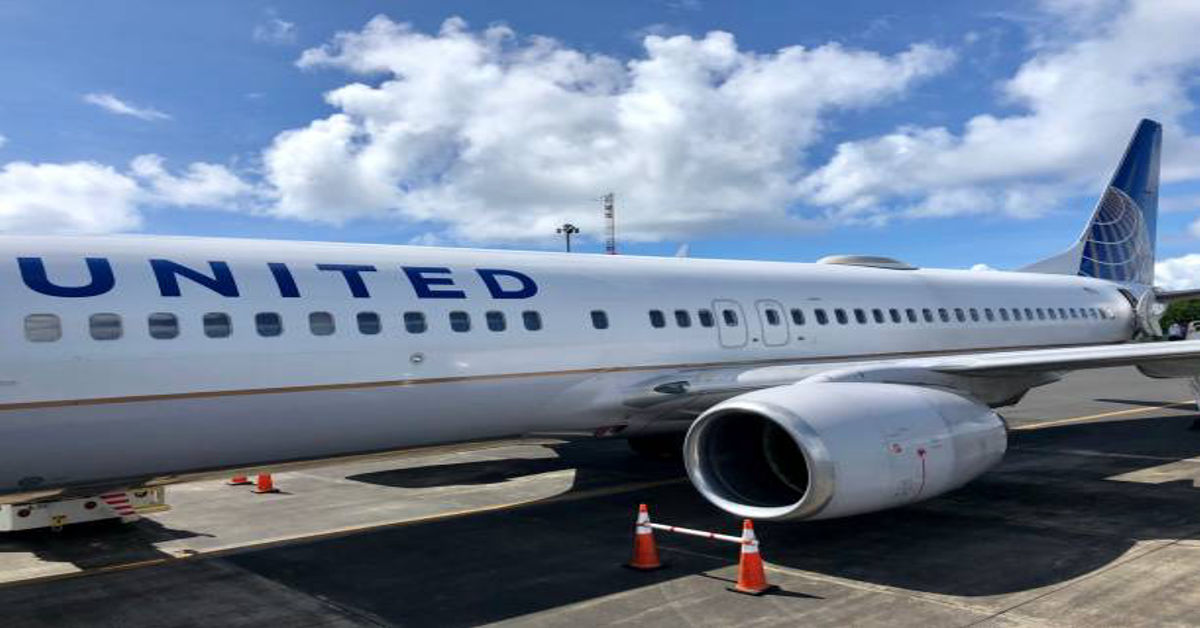
A diversion of a commercial airliner is always a serious event, fraught with operational, financial, and emotional consequences. When United Airlines Flight UA967 was diverted, many passengers likely felt confusion, anxiety, and worry—questions about why the plane didn’t reach its original destination, what happens next, and whether they are entitled to any compensation often follow. This article provides a detailed, richly informative and originally written explanation of what it means when a flight like UA967 is diverted, the common causes of diversions, how United handles such situations, passengers’ rights under modern regulations, practical advice for affected travelers, and longer-term lessons for flying.
1. What Does It Mean When a Flight Is Diverted?
A “diverted” flight is one that lands at an airport other than the one originally scheduled. Rather than flying to its planned destination, the aircraft is rerouted mid-air or just before landing for safety, technical, or operational reasons. aireclaim.com+1
Diversion is not the same as cancellation. A cancelled flight never takes off, but a diverted flight does fly — just not to the intended airport. ROSA P+1
For passengers, this means they will likely face delays, potential rebooking, and possibly accommodation or meals depending on where the plane lands and how long the disruption is.
2. Why Was United Flight UA967 Diverted? Possible Causes
While specific internal details of UA967’s diversion might not always be publicly disclosed, it’s helpful to understand the common reasons why an airliner may be diverted. Many of these apply to United and other airlines; pilots and operations teams make decisions based on safety, regulations, and available alternates.
Here are typical causes:
2.1 Technical or Mechanical Issues
Mechanical faults are among the most frequent reasons for diversions. This can include engine warnings or imbalances, hydraulic system problems, or failures with electrical or avionics systems. According to technical experts, even fault codes that may not immediately compromise safety can lead pilots to divert as a precaution. NewsRound+1
2.2 Weather Conditions
Adverse weather is another leading cause. This includes thunderstorms, heavy rain, strong winds, fog, or crosswinds that make landing at the original airport unsafe or impossible. Travel And Tour World+1
2.3 Medical Emergencies
If a passenger or crew member experiences a serious medical issue — such as a cardiac event, stroke, or even labor — the aircraft may divert to the nearest airport with suitable medical facilities. Travel And Tour World Studies show that cardiac, neurological, or respiratory emergencies are common reasons for such diversions. skybrary.aero
2.4 Fuel or Navigation Concerns
Sometimes, fuel imbalance, unexpected headwinds, or navigation system failures can force a reroute. Cordless.io
2.5 Security or Behavioral Issues
Disruptive passengers, onboard conflict, or suspected threats can force pilots to land at a more secure or closer airport. Cordless.io
2.6 Other Operational Situations
This includes bird strikes, smoke or fire (or indication thereof), or even less common causes like crew passport issues or critical equipment concerns. Cordless.io
In the case of UA967, given its transatlantic nature, engineers and pilots may have chosen an alternate airport that was both safe and logistically manageable — a common practice for wide-body aircraft traveling long distances. NewsRound
3. Operational and Financial Impacts on United
When United decides to divert a flight, the adverse consequences extend beyond passenger inconvenience. Some of these impacts include:
- Increased Fuel Costs: Flying to a different airport, possibly circling, then landing and taking off again (if the flight continues) burns extra fuel.
- Ground Handling and Fees: Unplanned landings require unscheduled ground support, handling the aircraft, and potentially engaging rescue or firefighting services.
- Crew Logistics: The crew might exceed duty limits, necessitating relief crews or causing further schedule disruptions.
- Passenger Care Costs: United must often provide meals, hotel accommodations, and rebooking for passengers, which can become expensive.
- Operational Ripple Effects: A diverted aircraft may not make its next scheduled flight, causing cascading delays across the network.
Diversions are among the most expensive safety decisions an airline makes, reflecting a trade-off: preserving aircraft and passenger safety at the cost of operational disruption. NewsRound
4. Passenger Experience: What Happens When UA967 Is Diverted
For passengers aboard Flight UA967 diverted to another airport, here is a realistic sequence of events and what they can expect:
4.1 In-Flight Announcement and Communication
Once a diversion decision is made, the flight crew (pilots and cabin crew) will inform passengers about the situation, what they know, and reassure them. Communication may include the reason (to the degree it’s shared), the chosen diversion airport, and expected next steps.
4.2 Landing at Alternate Airport
The aircraft will land at the alternate airport. This airport is chosen based on runway length, available emergency services, and whether it can accommodate that aircraft type. NewsRound
4.3 Disembarkation or Stay Onboard
Depending on the airport and its capacity, passengers may disembark or remain seated. If disembarkation is allowed, United staff or contractors may help with rebooking, hotel, food, or transport.
4.4 Rebooking or Continuation
United generally rebooks affected passengers onto the next available flight to their destination. If a continuation flight using the same aircraft is feasible, they may refuel, address any mechanical issue, then depart again. In other cases, passengers may switch to a different plane.
4.5 Compensation and Care
United offers care — meals, hotel rooms, transport — when necessary, though the type of support depends on the cause, length of delay, and location.
5. What Are Your Rights as a Passenger in a Diversion?
If you are on a diverted flight like UA967, you may have certain rights depending on where you started, where you’re going, and under which regulations you fly. Here are key points to consider:
5.1 U.S. Passenger Rights under DOT Rules
- As of April 2024, U.S. Department of Transportation (DOT) regulations require full cash refunds for significantly changed or canceled flights if you decline travel credits. Axis Intelligence
- If a diversion causes a delay of 3+ hours domestically or 6+ hours internationally, you may request a refund instead of accepting alternative transportation. Axis Intelligence+1
- United may provide meals, lodging, and transport, though there’s no uniform guarantee in all cases; it depends on internal policies and the circumstances. Axis Intelligence
- You should document all extra costs (meals, hotels, transport) for potential reimbursement.
5.2 European (EU 261) / International Rights
- If your flight departs from an EU airport or arrives in the EU on a European airline, you could be eligible for compensation under EU Regulation 261/2004 if the diversion caused you to arrive at your final destination 3+ hours late. AirHelp
- However, extraordinary circumstances typically exclude compensation. These may include severe weather, security threats, or medical emergencies. AirHelp
- Even with extraordinary circumstances, you may be entitled to “care” — meals, accommodation, transport — while waiting for a rebooked flight. AirAdvisor
6. Practical Tips for Passengers During and After a Diversion
If you find yourself on a flight like UA967 that’s diverted, here are practical, actionable tips to help you navigate the situation smoothly:
- Stay calm and patient — Crew members are doing their best to prioritize safety and coordinate logistics.
- Use the airline’s app — United’s mobile app may provide real-time updates, rebooking options, and notifications. The Manual
- Document everything — Keep hold of boarding passes, take photos of your new arrival airport, keep receipts for food, hotels, and transit. These help with compensation claims. The Manual
- Know your rights — Be aware of the DOT or EU regulations depending on your flight. If needed, politely ask for a refund rather than a voucher.
- Use travel insurance — If you have travel insurance (or credit card insurance), check whether it covers delays, diversions, and overnight stays.
- Stay reachable — Make sure your phone is charged, and stay near your device; you might need to respond quickly to rebooking messages or call customer support.
- Be flexible but proactive — Airlines often rebook passengers automatically, but you can sometimes choose a better alternative if you contact them or use the app.
- File a claim if needed — Use United’s customer care or third-party claim services to request reimbursement or compensation after the event. AirAdvisor
7. Real-World Example and Context
To illustrate how serious and complex diversions can be, let’s look at context and related cases:
- Airline analysts mention that for transatlantic aircraft like those possibly used on UA967, certain alternate airports (e.g., in Canada or eastern North America) are especially strategic for diversions due to runway length, rescue services, and U.S./Canadian customs alignment. NewsRound
- In another report, United flights have been diverted for mechanical issues, emergency system warnings, or power system malfunctions. Axis Intelligence
- Studies of diversions show that cardiac and neurological emergencies account for a significant proportion of medical-related diversions. skybrary.aero
8. Long-Term Implications and Lessons for Airlines and Passengers
8.1 For Airlines (Like United)
United and similar carriers must balance safety, cost, and customer satisfaction when making diversion decisions. Each diversion may erode profitability, but safety must come first. Over time, frequent diversions can influence maintenance policies, crew scheduling, and risk models. Financially, diversions are expensive: fuel, ground operations, customer accommodations, and rebooking costs add up. Airlines may also carry reputational risk, especially if passengers perceive diversions as avoidable or mismanaged.
8.2 For Passengers
Diversions emphasize the unpredictability of air travel. To prepare, frequent travelers should understand their rights, use travel insurance, and be mentally ready for disruptions. Diversions also highlight the importance of choosing airlines and itineraries with contingency plans, more flexible rebooking policies, and open communication.
8.3 Policy and Regulatory Focus
Regulators might further strengthen passenger protection. As of 2024, DOT rules require refunds for significantly changed flights — a trend that may expand. Axis Intelligence Legal and consumer advocacy groups continue pressing for clearer, enforceable standards on care and compensation.
9. Risks and Challenges When Claiming Compensation
While there are rights, claiming compensation or reimbursement is not always easy:
- Proof Burden: Passengers must often provide receipts, photos, and documentation.
- Regulation Limits: If diversion is due to “extraordinary circumstances,” compensation may be denied under EU law. AirHelp
- Delay Claims Processing: Airlines might take time to review and respond; claims may require follow-up.
- Cross-Jurisdiction Complexity: For international flights, which set of passenger rights applies may not be obvious (U.S. DOT, EU261, or other).
- Airline Response: Compensation may be offered in travel vouchers or frequent-flier miles rather than cash, depending on airline policy or whether the passenger presses for refund. Reddit+1
10. Hypothetical Scenario Analysis: UA967 Diversion Case Study
To put everything together, let’s imagine a hypothetical diversion scenario for UA967 and analyze step-by-step what might happen and how passengers could respond optimally.
Scenario: UA967 is a transatlantic flight from New York to a European destination. Mid-flight, pilots receive a warning of a hydraulic system anomaly. Rather than risk potential failure over the ocean, they decide to divert to an airport in Canada that has long runways and full services.
- Decision & Communication: The flight crew notifies passengers of a diversion, citing a system warning. They emphasize safety and that a longer stop may be required for inspection.
- Landing & Disembarkation: Once on the ground, United arranges for ground-handling. Passengers perhaps disembark, go through customs (if needed), and gather in a terminal.
- Care: United offers meal vouchers, hotel if overnight is required, and transport. Passengers document all expenses.
- Rebooking: United rebooks passengers on the next available aircraft to Europe or, if possible, continues with the same aircraft after maintenance clearance.
- Claim Process: After arrival, passengers file for reimbursement (hotel, meals) and possibly a refund, citing U.S. DOT regulation or EU261, depending on route. They gather all receipts, boarding documents, and correspondence.
- Outcome: If United agrees or regulation supports it, passengers receive a cash refund, reimbursement, or a combination. Alternatively, travel credits or frequent-mileage compensation may be offered.
This hypothetical illustrates both operational complexity and passenger recourse when a transatlantic airline like United diverts a flight such as UA967.
Conclusion
A diversion of a major carrier flight like United Flight UA967 is a multifaceted event, driven by safety-first decisions that involve technical, weather, medical, or operational factors. For passengers, it means disruption, potential delays, and sometimes unexpected overnight stays. But it also triggers a set of rights, especially under modern U.S. Department of Transportation regulations and European laws (where applicable), that can give recourse for refunds, rebooking, and compensation.
Understanding why diversions happen, what to expect during the process, and how to document and claim your rights empowers travelers. While airline diversion is unwelcome, being prepared — mentally, legally, and logistically — can make a significant difference in how that disruption is handled and resolved. Safety remains the foundation of every decision, but passenger awareness and advocacy help ensure that inconvenience does not go unacknowledged or uncompensated.
FAQs
1. What exactly caused United Flight UA967 to be diverted?
The publicly reported or typical causes may include mechanical issues, system warnings, or operational concerns, though the airline might not disclose full technical details.
2. Am I eligible for a refund if my flight is diverted?
Yes — under current U.S. DOT rules, if the diversion significantly changes your trip (e.g., long delays or altered arrival), you can request a cash refund. Axis Intelligence
3. Can I get compensation for a diversion under EU regulation?
Possibly. Under EU 261, you may be eligible if the diversion causes a delay at arrival, unless the cause is considered an extraordinary circumstance. AirHelp
4. What should I do during the diversion to help my claim later?
Keep all documentation: boarding pass, receipts for food, hotels, transport; take photos; note announcements; and use the airline app to track rebooking.
5. Does United always provide hotel and meals if a flight is diverted?
Not always mandatory, but United may provide care depending on the diversion’s context, length, and their internal policies. If offered, save all receipts and documentation.






